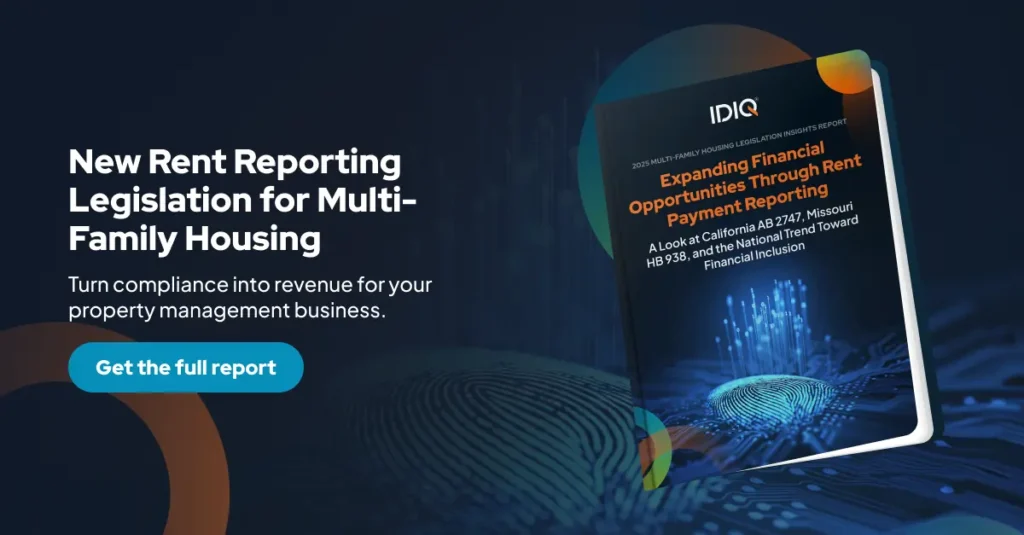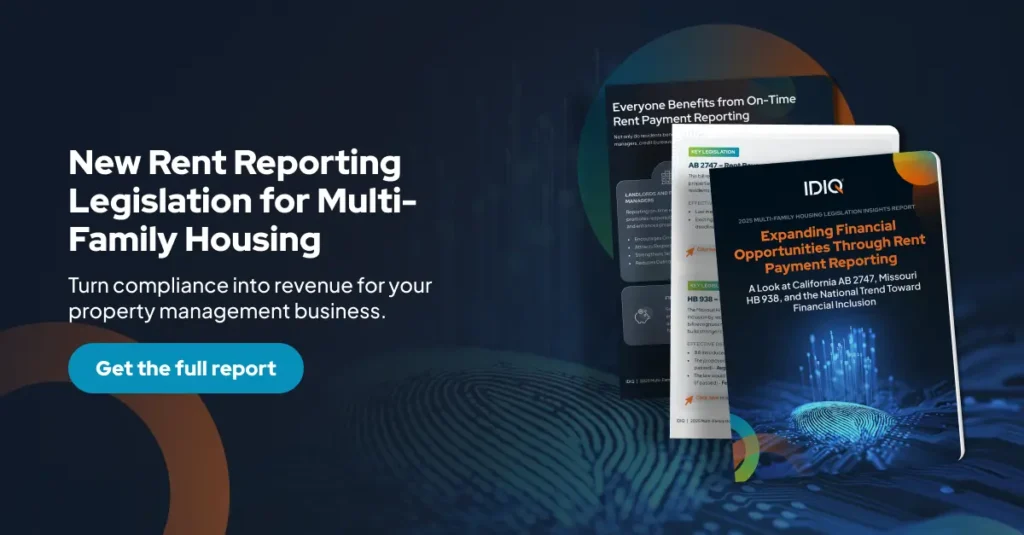Millions of renters in the United States face a common financial hurdle that their on-time rent payments do not contribute to their credit scores, unlike homeowners whose mortgage payments directly affect their credit scores.
This lack of credit tradeline can limit financial opportunities for renters, making it harder to secure loans, receive favorable interest rates, and qualify for mortgages. However, a legislative shift is underway with new legislation promoting financial inclusion with rent payment reporting. The 2025 Multi-Family Housing Legislation Insights Report explores how new policies, such as California’s Assembly Bill 2747 and Missouri’s House Bill 938, are making rent payment reporting a standard practice, promoting financial equity for millions.

The Credit Gap: Why Rent Payment Reporting Matters
For years, renters have been at a disadvantage in the credit system. While they often spend a majority of their income on housing, their responsible payment history has not been reflected in their credit profiles. According to an IDIQ study:
- 80% of renters want their on-time rent payments included in their credit scores.
- 95% of renters seek resources to help them build and manage their credit.
- 75% of renters would consider rent payment reporting when choosing a rental property.
Recognizing the need for financial inclusion, policymakers have begun enacting legislation that mandates landlords and property managers to offer rent payment reporting. This shift aims to provide renters with the same financial opportunities as homeowners.
Key Legislative Changes in 2025
1. California’s AB 2747: Rent Payment Reporting Becomes Law
California has taken a major step in bridging the credit gap with AB 2747, which builds upon Senate Bill 1157. Effective Jan. 1, 2025, this law requires property managers and landlords with 15 or more rental units to offer rent payment reporting to the major credit bureaus. This allows tenants to build credit histories and improve their access to financial services and better loan terms.
2. Missouri’s HB 938: A Push Toward Financial Inclusion
While Missouri’s HB 938 is still awaiting legislative approval, it aims to mirror California’s approach. If passed, it requires landlords and property manager to offer rent payment reporting credit-building opportunities for renters. The proposed law would go into effect on Aug. 28, 2025, with compliance requirements for new leases starting Feb. 1, 2026.
A Growing Trend
As more states explore similar initiatives, rent payment reporting legislation enhances credit accessibility and financial inclusion while benefiting not only residents but landlords and property manager, credit bureaus, and financial institutions as well.
Who Benefits from Rent Payment Reporting?
The impact of these legislative changes provides the following benefits:
- Renters: Gain access to improved credit scores, better loan terms, and increased financial stability.
- Landlords & Property Managers: Benefit by attracting responsible tenants and building stronger tenant relationships.
- Credit Bureaus: Gain more comprehensive financial data, which can result in more accurate credit scoring.
- Financial Institutions: Expand lending opportunities to responsible renters with improved risk assessments.

How IDIQ is Supporting This Movement
Navigating new regulations can be complex, but IDIQ simplifies compliance through automated rent payment reporting solutions. As a trusted third-party data aggregator, IDIQ offers tools to help landlords, property managers, and renters seamlessly report rent payments to credit bureaus.
Download the Full Report for In-Depth Insights
New rent payment reporting legislation is bringing financial inclusion into the credit system, allowing renters to build credit and improve their financial well-being. To explore the full impact of these legislative changes and learn how IDIQ can help, download the full 2025 Multi-Family Housing Legislation Insights Report today.






